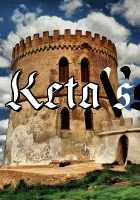I recently got a book from the Writer's Digest Book Club called THE GILDED TONGUE: OVERLY ELEGANT WORDS FOR EVERYDAY THINGS, by Rod L. Evans. It's a glossary of elaborate, obscure words, all of them real (not made up by the author), as far as I can tell. A great treat for lovers of language. The reverse dictionary in the back -- meanings first, followed by words -- should be quite useful, in case, for instance, you're seeking a fancy word for "taking time off work" (feriation), "swimming" (natation), or "sun-worshiper" (heliolator). Some of the entries are polysyllable equivalents of simpler words. Others offer precise terms for concepts that have no widely known single-word equivalent. Most people probably know murdering one's wife is uxoricide, but did you know sexual intercourse in a parked car has a name (amomaxia)? Or that sexual intercourse without orgasm is acritition (a word that would sound very impressive in Viagra ads)? The potential for arcane insults is practically infinite, e.g., limicolous (living in mud). Personally, I think the author cheats to fill out Y and Z by including such not-so-rare specimens as yenta and zaftig. Haven't these Yiddish words become familiar to most Americans, especially in urban areas? But in general it's just a fun book to browse.
As a writer, do you use lots of arcane vocabulary? As a reader, do you like to encounter "big words" or unfamiliar ones in fiction? I enjoy seeing an author discover the mot juste rather than "dumbing down" his or her prose with a crude approximation. A skillful writer can make the meaning clear from context or subtly work in a definition. For instance, I like the way Chelsea Quinn Yarbro's historical fiction uses the proper names for clothing unique to a particular place and century. In contemporary fiction, of course, the vocabulary should fit the character. If he or she would use a certain word -- because of his/her profession or level of education -- that word shouldn't be avoided just for fear some readers might not get it. I like authors who expect intelligence and literacy of their readers, as well as the willingness to look up an unfamiliar word now and then.
Tuesday, September 05, 2006
Subscribe to:
Post Comments (Atom)






No comments:
Post a Comment